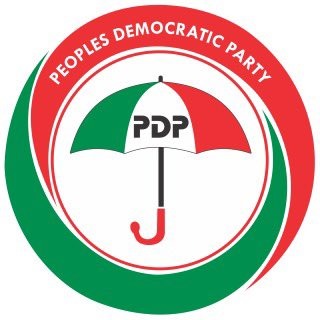The PDP’s Strategic Maneuvering for 2027: Zoning, Reorganization, and Condemnation of APC Tactics
The Peoples Democratic Party (PDP), Nigeria’s main opposition party, convened its 102nd National Executive Committee (NEC) meeting in Abuja on Monday, charting a course for the 2027 general elections and beyond. Central to their strategy is the decision to zone the 2027 presidential ticket to the Southern region of the country, a move aimed at addressing internal divisions and presenting a united front against the ruling All Progressives Congress (APC). This decision follows the contentious 2023 election cycle where the PDP’s open presidential primary led to the emergence of Atiku Abubakar, a northern candidate, despite objections from some southern leaders who felt marginalized by the power-sharing arrangement. This internal discord ultimately contributed to the PDP’s defeat at the polls. By preemptively zoning the ticket to the South, the PDP seeks to avoid a repeat of this scenario and project an image of inclusivity and fairness.
Beyond the presidential ticket, the NEC reaffirmed the existing zoning formula for the upcoming National Convention scheduled for November 2025 in Ibadan, Oyo State. This means that national offices currently held by individuals from the North will remain in the North, and similarly, positions held by individuals from the South will remain in the South. This decision reflects a commitment to maintaining a balance of power within the party structure and preventing further internal conflict. The NEC also received an update on the PDP Constitution Amendment Committee’s progress, directing the committee to circulate the draft constitution to various party organs and chapters for feedback. This participatory approach aims to ensure that the amended constitution reflects the collective will of the party members.
The NEC meeting served as an opportunity to commend the efforts of various party stakeholders in preparing for the November National Convention. Governors, the Board of Trustees, the National Working Committee (NWC), the National Assembly caucus, and other party organs were recognized for their contributions to ensuring a successful convention. This recognition underscores the importance of unity and collaboration within the party as it gears up for the upcoming elections. Furthermore, the NEC confirmed Umar Damagum as the substantive National Chairman, effective immediately. This decision acknowledges Damagum’s stabilizing influence within the party during a period of transition and reinforces his leadership role.
The PDP also used the NEC meeting as a platform to criticize the APC’s governance. The party condemned what it described as the APC’s “state capture” tactics, alleging intimidation, manipulation, inducement, coercion, and violence against Nigerians, particularly during recent bye-elections. The PDP specifically highlighted the alleged militarization of bye-elections in Kaduna, Taraba, and Zamfara states, claiming that the APC deployed excessive security personnel to influence the outcome of the elections. This accusation reinforces the PDP’s narrative that the APC is undermining democratic processes and working towards a one-party state.
The PDP framed the APC’s alleged actions as a threat to democracy and the country’s existence. By portraying itself as the defender of democratic principles and the well-being of all citizens, the PDP seeks to position itself as a viable alternative to the ruling party. This rhetoric aims to resonate with voters who are disillusioned with the APC’s governance and are looking for a change in leadership. The PDP’s commitment to regaining power in 2027 serves as a rallying cry for its members and supporters, urging them to work towards achieving this goal.
In essence, the PDP’s 102nd NEC meeting laid the groundwork for the party’s resurgence in the political landscape. By strategically zoning its presidential ticket to the South, reaffirming existing zoning formulas, and condemning the alleged undemocratic practices of the APC, the PDP aims to project an image of unity, fairness, and commitment to democratic principles. The party’s focus on internal reorganization, coupled with its criticisms of the ruling party, forms a cohesive strategy for regaining power in the 2027 general elections. The PDP’s narrative seeks to convince Nigerians that they represent a viable alternative to the APC and are capable of leading the country in a different direction. The upcoming National Convention in November will be a crucial test of the party’s ability to implement its strategic vision and solidify its position as a strong contender in future elections.














